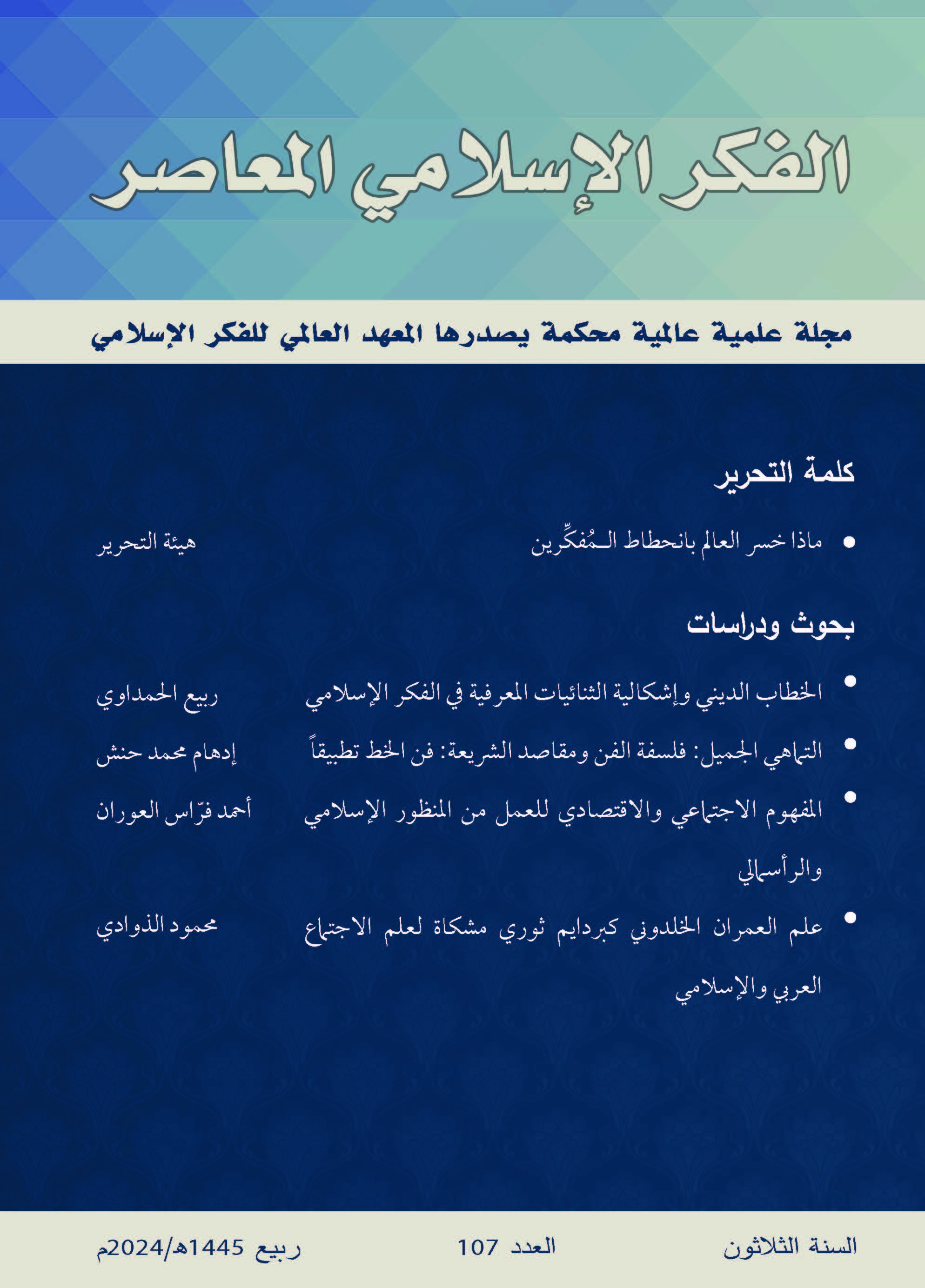Abstract
This study examines the intellectual and referential underpinnings of the legislative methodology in which revelation (naql), reason (ʿaql), and reality (wāqiʿ) interact according to the addition principle and not through the method of tarjīḥ (establishing preponderance). The term ijtihad in Islamic thought is considered an entry point for the interaction of reference bases (revelation, reason, and reality). The study seeks to respond to two approaches to the interpretation of religious discourse: one that does not consider real-world context (wāqiʿ), and thus only adheres to the details of the scriptural legal texts ‒ disregarding the universality of the revelation; and one that gives priority in reference to real-world context over the scriptural legal texts, divesting revelation of its sanctity and turning it into a mere part of the Islamic tradition, with no distinction of status. In its attempt to move from epistemological binaries to methodological unity in Islamic thought, the study also seeks to reveal the defects in certain contemporary readings ‒ those responsible for the epistemological rupture between cognitive binaries, which should integrate rather than collide.

This work is licensed under a Creative Commons Attribution-NonCommercial-NoDerivatives 4.0 International License.
Copyright (c) 2024 المعهد العالمي للفكر الإسلامي





